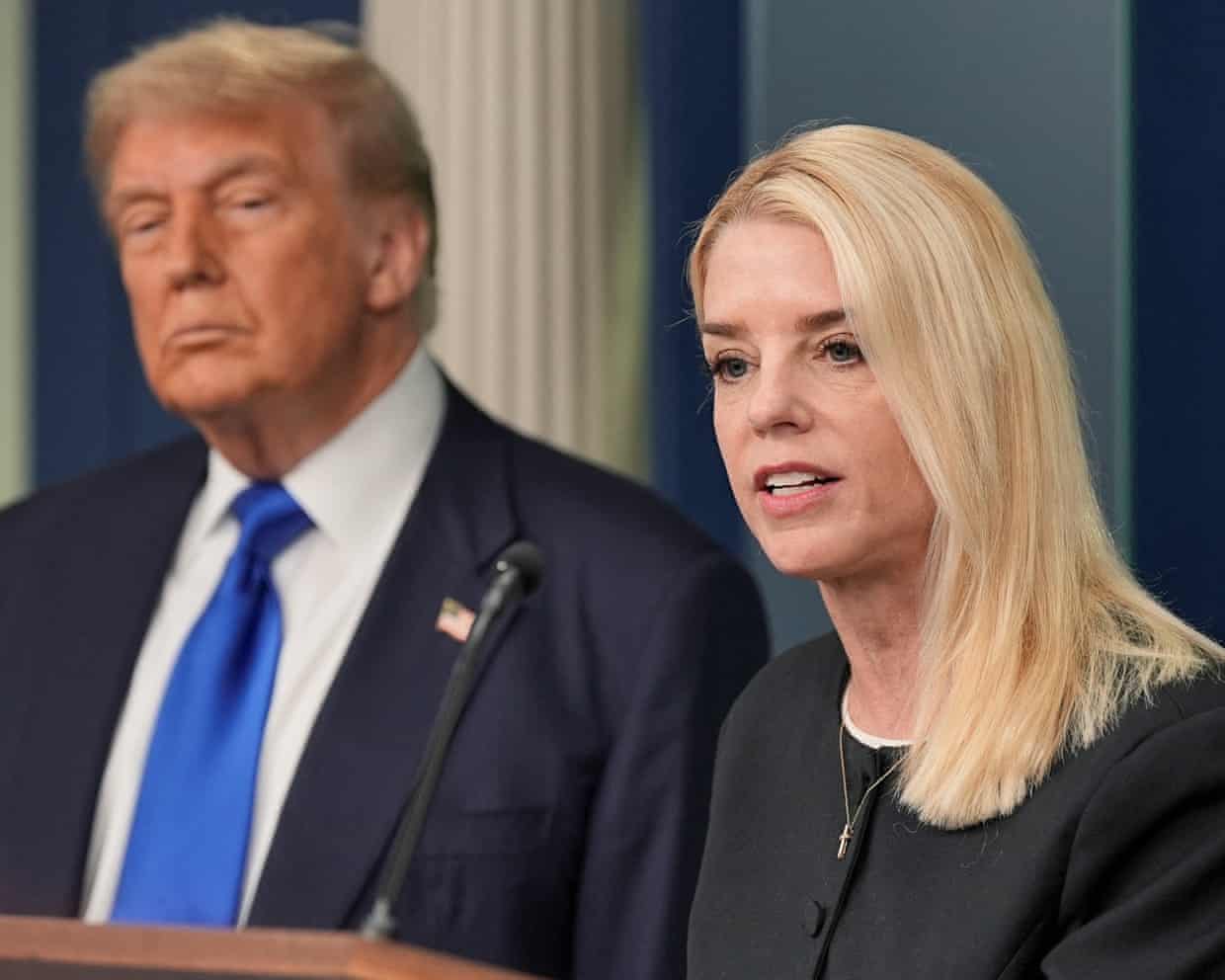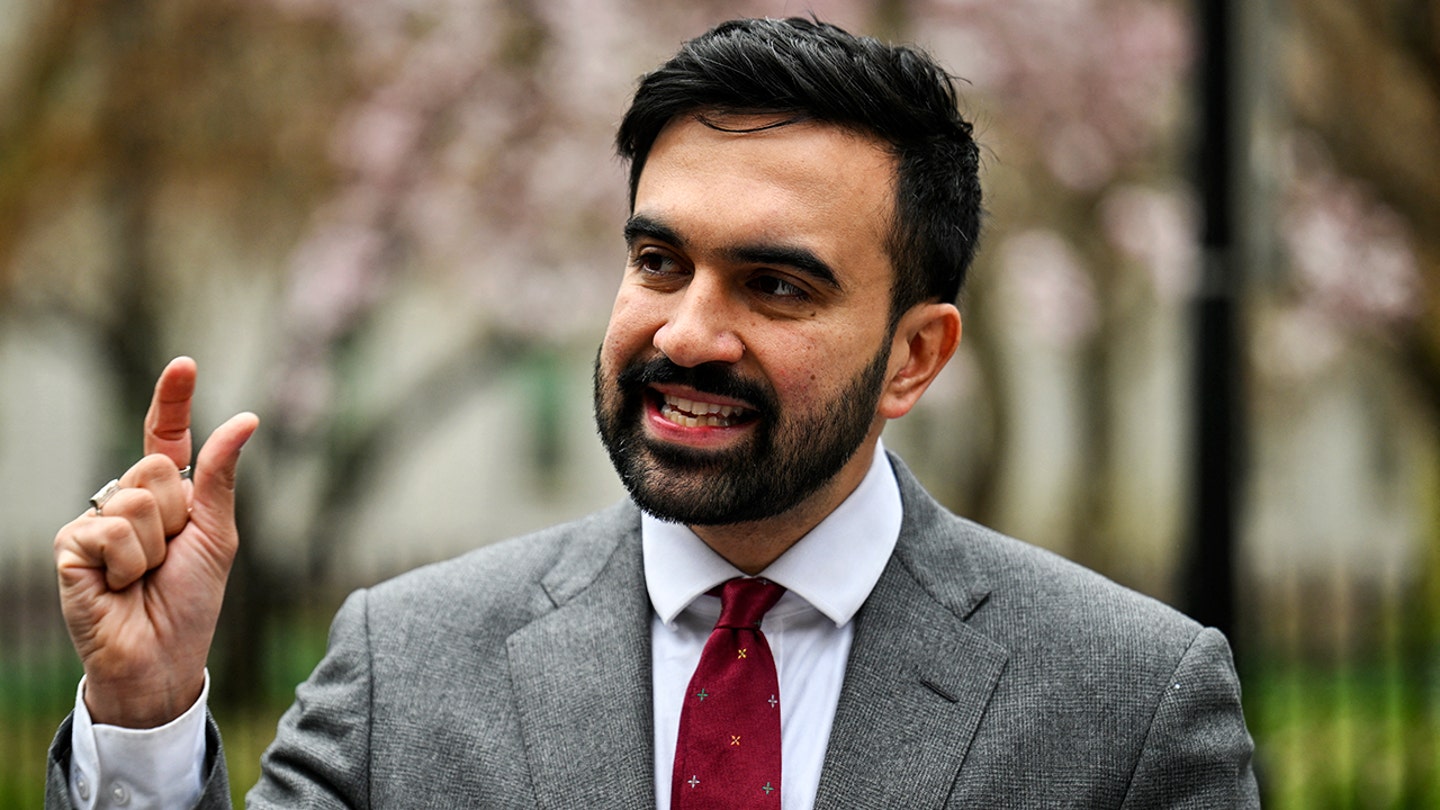
US court says Trump’s Doge team can access social security numbers and other sensitive data
Entities mentioned:
- Trump administration: Control, Power, Efficiency
- Department of Government Efficiency (Doge): Efficiency, Control, Power
- Unions: Self-preservation, Security, Privacy
- US appeals court: Duty, Justice, Obligation
- Donald Trump: Power, Control, Efficiency
- Elon Musk: Ambition, Influence, Efficiency
Article Assessment:
Credibility Score: 75/100
Bias Rating: 45/100 (Center)
Sentiment Score: 35/100
Authoritarianism Risk: 65/100 (Authoritarian Tendencies)
Bias Analysis:
The article presents a relatively balanced view, including perspectives from both sides of the issue. However, there's a slight lean towards emphasizing the concerns of the unions and potential privacy issues, which may indicate a subtle center-left bias.
Key metric: Government Efficiency and Transparency
As a social scientist, I analyze that this court decision represents a significant shift in the balance between government efficiency efforts and individual privacy concerns. The ruling allows the Trump administration's Doge team to access sensitive personal data, potentially impacting millions of Americans. This move towards centralized data access could lead to increased government efficiency, but it also raises serious privacy and security concerns. The court's decision suggests a prioritization of administrative streamlining over potential privacy risks, which could have long-term implications for how personal data is handled in government systems. The conflict between unions and the administration highlights the tension between workforce protection and government downsizing initiatives. This case also demonstrates the ongoing debate about the appropriate scope and power of unofficial government teams like Doge in accessing and utilizing sensitive information.

Trump officials move to punish lawyer who tried to block client’s deportation
Entities mentioned:
- Joshua Schroeder: Justice, Duty, Professional pride
- US Department of Justice: Control, Power, Righteousness
- Trump administration: Control, Power, Righteousness
- Donald Trump: Power, Control, Ambition
Article Assessment:
Credibility Score: 75/100
Bias Rating: 35/100 (Lean Left)
Sentiment Score: 25/100
Authoritarianism Risk: 70/100 (Authoritarian Tendencies)
Bias Analysis:
The article leans left in its framing, portraying the government's actions negatively and emphasizing potential threats to legal representation. While it includes some government perspective, the overall tone is sympathetic to Schroeder and critical of the administration's approach.
Key metric: Rule of Law Index
As a social scientist, I analyze that this case demonstrates a potential erosion of the Rule of Law Index in the United States. The Trump administration's attempt to sanction an attorney for defending his client's rights could have a chilling effect on legal representation in immigration cases. This action may discourage lawyers from vigorously defending their clients, potentially undermining due process and access to justice. The use of government power to target individual attorneys who challenge deportation orders could be seen as an attempt to consolidate executive power over the judicial system, particularly in immigration matters. This trend, if continued, could significantly impact the independence of the legal profession and the overall strength of the rule of law in the country.

Liberal comic who helped popularize podcasting explains why he turned down Hillary Clinton interview
Entities mentioned:
- Marc Maron: Professional pride, Self-respect, Integrity
- Hillary Clinton: Ambition, Power, Recognition
- Barack Obama: Legacy, Influence, Recognition
- Brendan McDonald: Professional pride, Ambition, Enthusiasm
Article Assessment:
Credibility Score: 75/100
Bias Rating: 55/100 (Center)
Sentiment Score: 45/100
Authoritarianism Risk: 20/100 (Strongly Democratic)
Bias Analysis:
The article presents multiple perspectives and quotes directly from the primary source. While it includes some commentary on political figures, it maintains a relatively balanced tone without overtly favoring any particular viewpoint.
Key metric: Media Trust and Influence
As a social scientist, I analyze that this article highlights the evolving landscape of media influence and the challenges faced by traditional political figures in connecting with audiences through new media formats. Maron's decision to decline an interview with Clinton reflects a growing skepticism towards politicians' ability to provide genuine, unscripted content in podcast interviews. This shift suggests a potential decline in the effectiveness of traditional political messaging strategies and an increased demand for authenticity in public discourse. The article also underscores the saturation of the podcast market, indicating a possible dilution of influence for individual shows and a fragmentation of audience attention.

DNC rips JD Vance for fishing with British foreign secretary in latest bizarre attack; Republicans hit back
Entities mentioned:
- JD Vance: Duty, Loyalty, Self-respect
- Democratic National Committee: Competitive spirit, Moral outrage, Power
- David Lammy: Professional pride, Duty, Unity
- Donald Trump: Power, Influence, Legacy
- Republican National Committee: Loyalty, Competitive spirit, Indignation
- Gavin Newsom: Ambition, Competitive spirit, Recognition
Article Assessment:
Credibility Score: 70/100
Bias Rating: 55/100 (Center)
Sentiment Score: 35/100
Authoritarianism Risk: 30/100 (Generally Democratic)
Bias Analysis:
The article presents both Democratic and Republican viewpoints, but slightly more space is given to Republican responses. The tone appears to be somewhat skeptical of the DNC's attacks, potentially indicating a slight right-leaning bias.
Key metric: Political Polarization Index
As a social scientist, I analyze that this article highlights the increasing political polarization in the United States. The DNC's aggressive criticism of Vice President Vance's personal activities during official trips, and the Republicans' defensive responses, demonstrate a heightened level of partisan tension. This exchange goes beyond policy disagreements and enters into personal attacks, which can further divide the electorate and erode public trust in political institutions. The focus on Vance's family outings and leisure activities, rather than substantive policy issues, suggests a trend towards sensationalism in political discourse. This type of rhetoric can distract from more pressing national concerns and potentially impact governance effectiveness.

White House blasts far-left DA's warning that Trump 'better not try' DC-style takeover 'in Philly
Entities mentioned:
- White House: Control, Justice, Security
- Larry Krasner: Moral outrage, Righteousness, Justice
- Donald Trump: Power, Control, Influence
- Abigail Jackson: Loyalty, Professional pride, Duty
- George Soros: Influence, Ideology, Power
- Patrick Dugan: Justice, Ambition, Duty
- Bob Brady: Loyalty, Control, Unity
Article Assessment:
Credibility Score: 65/100
Bias Rating: 70/100 (Lean Right)
Sentiment Score: 30/100
Authoritarianism Risk: 45/100 (Mixed/Neutral)
Bias Analysis:
The article leans right, evidenced by its framing of the DA as 'far-left' and 'Soros-backed', terms often used critically by conservative media. It gives more space to White House criticism of Krasner than to Krasner's own statements, suggesting a rightward slant.
Key metric: Crime Rate
As a social scientist, I analyze that this article highlights the tension between federal and local approaches to crime management. The conflict between the White House and Philadelphia's DA represents a broader ideological divide on criminal justice reform. This impacts the crime rate metric by potentially influencing law enforcement strategies and resource allocation. The contrasting claims about Philadelphia's crime statistics underscore the politicization of crime data and its use in shaping public perception and policy. The article also touches on themes of democratic values and the balance of power between different levels of government, which could have long-term implications for crime management approaches.

‘Living laboratory’: Trump admin urged to look to South America for lessons on fighting migrant gangs
Entities mentioned:
- José Gustavo Arocha: Professional pride, Security, Influence
- Trump administration: Security, Control, Righteousness
- Kristi Noem: Ambition, Security, Duty
- Biden administration: Unity, Obligation, Justice
- Tren de Aragua: Power, Greed, Control
- Nicolás Maduro: Power, Control, Greed
- Chilean government: Security, Justice, Control
- Ecuadorian government: Security, Justice, Control
- Colombian government: Unity, Obligation, Wariness
Article Assessment:
Credibility Score: 65/100
Bias Rating: 70/100 (Lean Right)
Sentiment Score: 30/100
Authoritarianism Risk: 55/100 (Mixed/Neutral)
Bias Analysis:
The article leans right, evidenced by its favorable portrayal of Trump-era policies and critical stance on the Biden administration's approach to immigration. The primary source is a former military officer advocating for stricter border control, which aligns with conservative viewpoints.
Key metric: National Security Index
As a social scientist, I analyze that this article highlights the complex interplay between immigration policies, transnational crime, and national security. The focus on South American countries' responses to migrant gangs, particularly Tren de Aragua, serves as a comparative case study for potential U.S. strategies. The article emphasizes the importance of swift, coordinated action across government agencies, as demonstrated by Chile and Ecuador's approaches. It also warns against open border policies without proper vetting and enforcement mechanisms, using Colombia as a cautionary example. The framing of these issues suggests that a more aggressive, security-focused approach to immigration and border control is necessary to combat transnational crime effectively. This perspective aligns with the Trump administration's stance on immigration and security, potentially influencing public opinion and policy decisions regarding border control and law enforcement strategies in the United States.

Beto O'Rourke compares 2025 America to 1933 Germany and 'can only imagine the history books'
Entities mentioned:
- Beto O'Rourke: Moral outrage, Righteousness, Fear
- Gavin Newsom: Influence, Ambition, Unity
- Ken Paxton: Justice, Control, Duty
- Texas Democrats: Determination, Righteousness, Self-preservation
- Republicans: Power, Control, Loyalty
- Donald Trump: Power, Control, Recognition
- John Cornyn: Justice, Duty, Loyalty
Article Assessment:
Credibility Score: 65/100
Bias Rating: 65/100 (Lean Right)
Sentiment Score: 25/100
Authoritarianism Risk: 40/100 (Generally Democratic)
Bias Analysis:
The article leans right, focusing more on O'Rourke's controversial statements and including criticism from Republican sources. While it presents O'Rourke's views, it does not provide balancing perspectives or context for his comparisons.
Key metric: Political Polarization Index
As a social scientist, I analyze that this article highlights the increasing political polarization in the United States. O'Rourke's comparison of contemporary America to 1933 Germany demonstrates an extreme view of the political opposition, which can further deepen divisions. The invocation of Nazi Germany in modern political discourse is a sign of heightened tensions and a breakdown in civil political dialogue. This rhetoric, coming from a prominent political figure, may contribute to a more adversarial and less cooperative political environment, potentially impacting governance and social cohesion. The article also illustrates the ongoing debate about the state of American democracy and the perceived threats to it, which is a significant concern affecting political discourse and public trust in institutions.

Mamdani takes aim at Trump's immigration policies in fiery Staten Island speech: 'We are fighting to keep NYC a sanctuary city'
Entities mentioned:
- Zohran Mamdani: Righteousness, Moral outrage, Justice
- Donald Trump: Control, Power, Security
- Eric Adams: Self-preservation, Ambition, Influence
- Joe Biden: Power, Control, Unity
- ICE: Duty, Control, Security
Article Assessment:
Credibility Score: 65/100
Bias Rating: 40/100 (Lean Left)
Sentiment Score: 30/100
Authoritarianism Risk: 35/100 (Generally Democratic)
Bias Analysis:
The article leans slightly left, focusing more on anti-Trump and pro-immigrant perspectives. While it includes some opposing viewpoints, the language and framing generally favor Mamdani's position and criticize Trump's policies.
Key metric: Immigration and Border Control Effectiveness
As a social scientist, I analyze that this article highlights the deep political divide over immigration policies in the United States, particularly in New York City. Mamdani's strong stance against Trump's immigration policies and his commitment to maintaining New York as a sanctuary city directly impacts the effectiveness of federal immigration enforcement. This local resistance to federal policies creates a complex dynamic that affects overall immigration control efforts. The article also reveals the shifting political alliances and the use of immigration as a key campaign issue, which could influence voter behavior and policy implementation at both local and national levels.

Texas Democrats who fled could face felony bribery charges, governor says
Entities mentioned:
- Texas Democrats: Justice, Self-preservation, Unity
- Greg Abbott: Power, Control, Righteousness
- Ken Paxton: Duty, Loyalty, Power
- Beto O'Rourke: Unity, Justice, Influence
- Gavin Newsom: Competitive spirit, Moral outrage, Power
- Republican Party: Power, Control, Ambition
- Democratic Party: Justice, Moral outrage, Self-preservation
Article Assessment:
Credibility Score: 65/100
Bias Rating: 65/100 (Lean Right)
Sentiment Score: 30/100
Authoritarianism Risk: 60/100 (Mixed/Neutral)
Bias Analysis:
The article leans right due to more extensive quotes and explanations from Republican officials, particularly Governor Abbott. While it includes some Democratic perspectives, they are less detailed and often framed as responses to Republican actions.
Key metric: Political Polarization Index
As a social scientist, I analyze that this article highlights the intensifying political polarization in the United States, particularly regarding redistricting efforts. The conflict between Texas Republicans and Democrats over redistricting showcases how electoral map manipulation can significantly impact political power dynamics. The aggressive rhetoric and actions from both sides, including threats of arrest and felony charges, indicate a breakdown in bipartisan cooperation and an escalation of partisan tactics. This situation is likely to further erode trust in democratic institutions and increase political animosity between parties, potentially leading to a higher Political Polarization Index score. The involvement of out-of-state governors also suggests that this local issue has national implications, further amplifying its impact on overall political polarization in the country.

Trump nominates ex-Fox commentator Tammy Bruce for deputy UN ambassador
Entities mentioned:
- Donald Trump: Power, Control, Influence
- Tammy Bruce: Ambition, Recognition, Influence
- United Nations: Unity, Influence, Security
- Fox News: Influence, Competitive spirit, Loyalty
Article Assessment:
Credibility Score: 70/100
Bias Rating: 55/100 (Center)
Sentiment Score: 50/100
Authoritarianism Risk: 45/100 (Mixed/Neutral)
Bias Analysis:
The article presents factual information about the nomination without overtly partisan language. However, the inclusion of other Trump-related headlines in the text suggests a slight lean towards critical coverage of the administration.
Key metric: US Diplomatic Influence
As a social scientist, I analyze that this nomination could significantly impact US diplomatic influence. Appointing a former media commentator to a key diplomatic position signals a shift towards prioritizing media-savvy individuals over career diplomats. This move may alter the dynamics of US representation at the UN, potentially affecting international perceptions and diplomatic relationships. The choice of a commentator from a network aligned with Trump's views suggests an attempt to project a particular ideological stance in international forums, which could influence diplomatic negotiations and alliances.